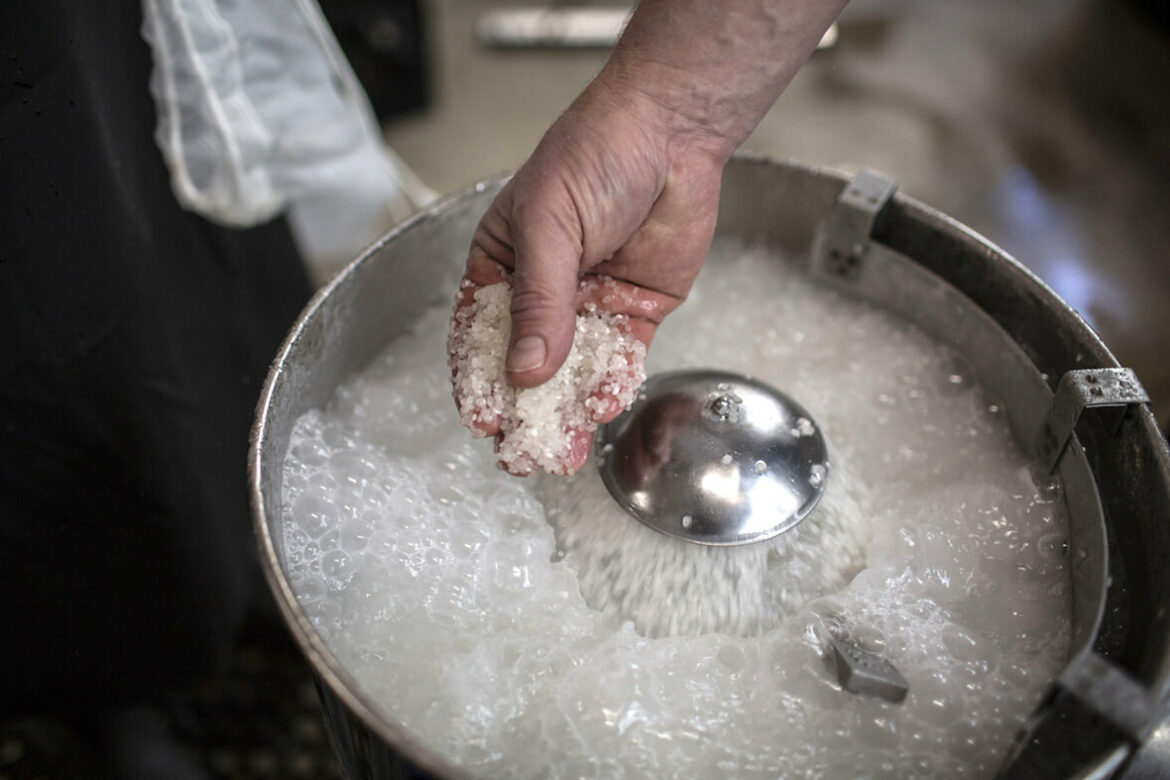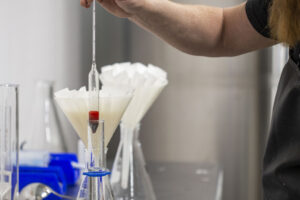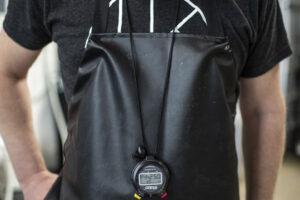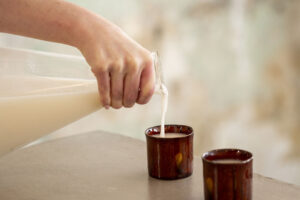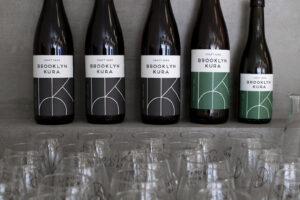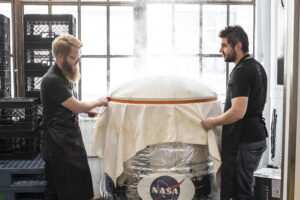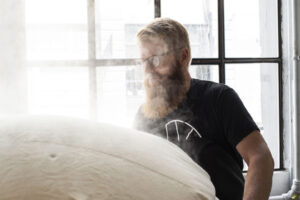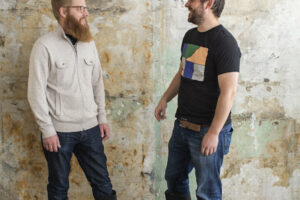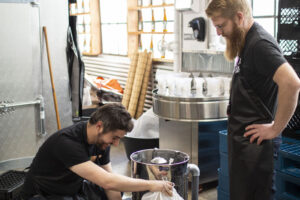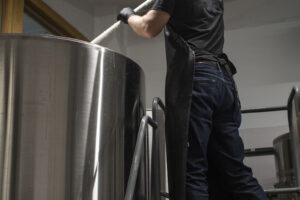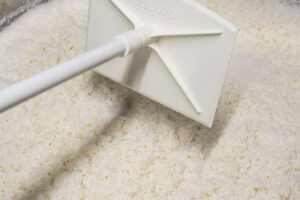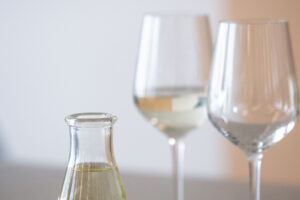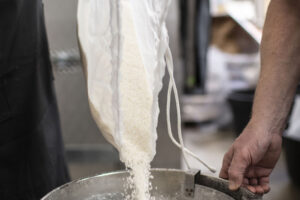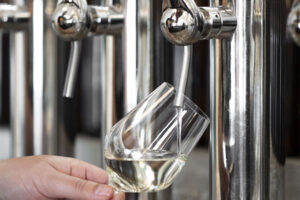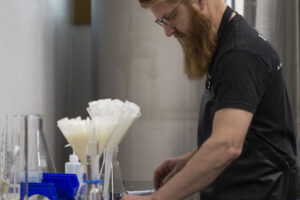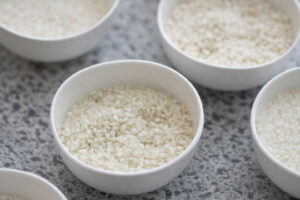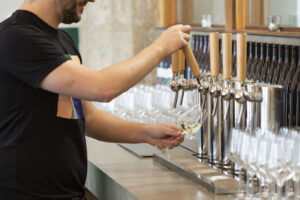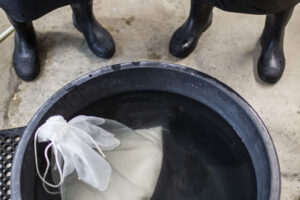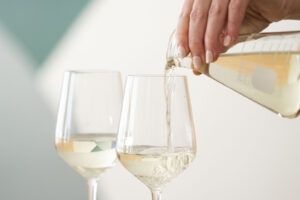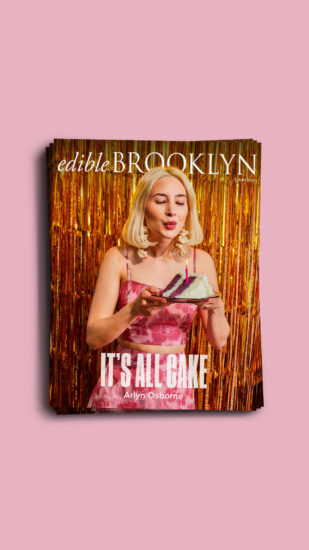
While Brooklyn has largely built its craft food and drink reputation with booze, it only recently got its first sake brewery. In fact, there was no sake being both made and sold in all of New York State until this January, when in an airy and industrial space in Sunset Park’s ever-burgeoning Industry City complex, Brooklyn Kura tap room and brewery opened to the public.
The rumblings of a potential business began in 2013 when Brandon Doughan and Brian Polen met at at a mutual friend’s wedding in Tokyo. Charmed by the delicate beverage while touring Japanese breweries, the new friends bonded while wondering why operations like these didn’t exist in the States (there are currently fewer than 20 American sake breweries). They saw an opportunity, though, and forged ahead despite the many challenges of making high-quality sake outside of Japan, like sourcing the proper equipment and ingredients. Nevertheless Doughan, a biochemist living in Portland at the time, and Polen, a New Yorker working for Amex, decided to join forces and create an American sake brewery modeled after the ones they had experienced during that fateful trip.
The duo took a significant next step in 2016 when Doughan, who had been brewing beer for over 20 years, moved to New York and started tinkering with early batches of sake in Bushwick while making koji, a mold that grows on rice and variations of which are an essential ingredient in several Japanese staples including soy sauce, miso soup and, of course, sake. In that Brooklyn DIY spirit he mostly taught himself how to brew sake via the Internet, a weeklong internship at a Japanese brewery and some time working at Portland’s SakeOne brewery. He also designed and built some of his own equipment, including a perforated table he needed to properly grow the koji.
Read more: What You Need to Know About Sake
No matter how unconventional his education has been in learning to make traditional sake, Doughan’s work has been lauded by both peers and patrons so far. At a recent seminar led by Tokyo sake educator John Gauntner, Brooklyn Kura’s product was lined up against 100 other sakes and overwhelmingly praised. “When you have Japanese brewers complimenting you on something that hasn’t been done very often outside of Japan, it’s incredibly validating,” says Polen.

Today Doughan brews the five sakes on the Brooklyn Kura taproom menu, which are all unpasteurized and classified as junmai gingo, meaning that 60 percent or less of the rice used to make them remains after milling. Each of the five drinks on tap, including a sparkling sake, has bright and aromatic flavor profiles characteristic of junmai gingo, with notes ranging from melon and lychee to cacao and banana. All pair well with the assorted cheeses and local charcuterie plates also served in their taproom.
Read more: How New York’s Sake Scene Got Serious
The moromi on the menu is especially unique. Early in the fermentation process, the cloudy mass of rice grains softens and acquiesces into a viscous liquid that Polen and Doughen also serve in the tap room. Lower in alcohol content than sake because it is not yet fully fermented, the moromi has a flavor that simply depends on the day.

No less resourceful is the way Brooklyn Kura upcycles their kasu, the residual mash that occurs after the sake is pressed and filtered post-fermentation. As part of Edible Brooklyn’s own Industry City dinner series, Chef’s Lab, chef Winston Chiu used Brooklyn Kura’s kasu in a noodle dish seasoned with clam broth and xo sauce. The kasu can also be found in noodles made by Ramen Lab, a panna cotta dessert at Bohemian and in a “sake-kasu” ice cream made by Noona’s ice cream. The goal is for 100 percent of the kasu to be incorporated in various dishes around New York.
In addition to operating as a tap room and brewery, Polen and Doughan are planning on Brooklyn Kura functioning as a space for classes and workshops. As Polen sees it, it’s “an opportunity to bring the sake community together in New York.”


